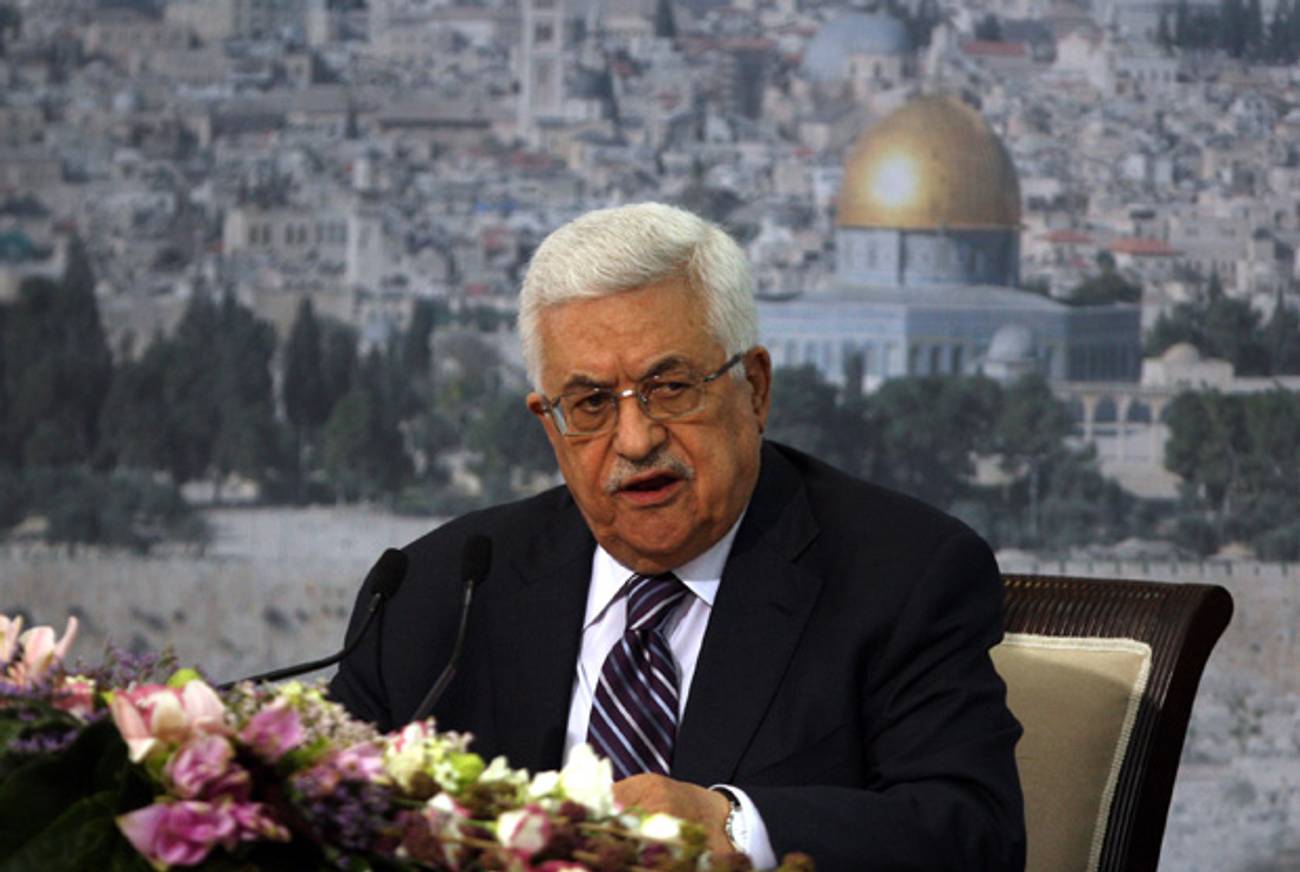BREAKING: Abbas to Go to Security Council
Move will prompt U.S. veto. And what else?




In a speech in Ramallah several minutes ago, Palestinian Authority President Abbas pledged that he would seek full statehood at the U.N. Security Council, where President Obama has vowed to use the U.S. veto to defeat such a resolution. The state proposed, he said, would have the pre-1967 borders and a capital in East Jerusalem. This contradicts the terms for negotiation laid out in May by Obama, which were predicated on the ’67 lines but involved land-swaps, and excluded Jerusalem altogether. It also fundamentally contradicts the U.S. position, which is that statehood should be attained only through direct talks with the Israelis. “What I will take to the U.N. will be the suffering and concerns of our people that have been taking place over 63 years living under the occupation,” Abbas said.
Who wins, who loses? It’s anyone’s guess right now. My instinct is to say this is actually a good thing for Prime Minister Netanyahu: it’s a much more stark step and therefore much easier to oppose than a watered-down, hardly-binding resolution in the General Assembly. It is not, however, what the U.S. was hoping for—it wants no resolutions at all—and is arguably less preferable to the U.S. than a G.A. resolution, in that it forces the U.S. to use its veto. Expect the U.S. now to concentrate on bringing other members of the Security Council onboard, which—again, because it’s a more drastic step—could be easier. Of the 14 other current Security Council members, Germany could almost certainly be brought around, and the U.S.’s fellow veto-wielders Britain and France might be amenable as well. After that, it’s Bosnia and Herzegovina; Brazil; Colombia; Gabon; India; Lebanon; Nigeria; Portugal; and South Africa. Only Colombia, heavily reliant as it is on U.S. support, seems like a possible “no” vote or abstainer. Keep in mind, however, that corralling those extra votes is purely optics and symbolism: even if the 14 other countries support it, the U.S. veto will automatically kill the resolution.
It’s worth recalling that the P.A. is one of only few parties close to the Mideast conflict that wants this. Israel and the U.S. are against. Hamas and Hezbollah are against (they see it as a compromise, as they want all the land). Jordan is against (the Hashemite monarch fears what this means for his substantial Palestinian population). The Palestinian diaspora is wary (they are getting less of a say, and this could arguably lead to the nullification of the right-of-return argument—although it won’t, because the U.S. will veto it).
The upside for Obama could come domestically. You can hit him for letting matters get to this point, but even the staunchest pro-Israel Republican will applaud him for exercising this veto, as they have already applauded him for promising to.
Finally, it’s not clear if this precludes a General Assembly vote: having failed in the Security Council, the Palestinians could then go to that venue, where the numbers and lack of vetos guarantee them a victory. You’ll want to pay attention next week.
Abbas: Palestinians to Seek Full U.N. Membership [Haaretz]
Earlier: Is the P.A. Statehood Drive Good for the P.A.?
Marc Tracy is a staff writer at The New Republic, and was previously a staff writer at Tablet. He tweets @marcatracy.